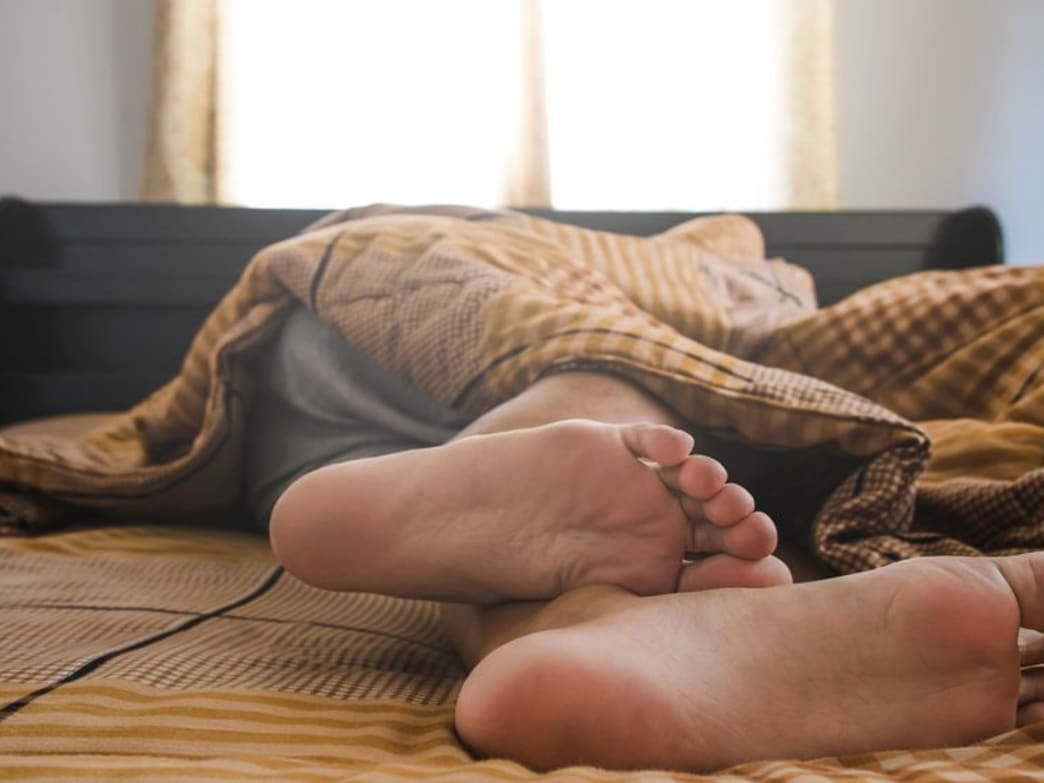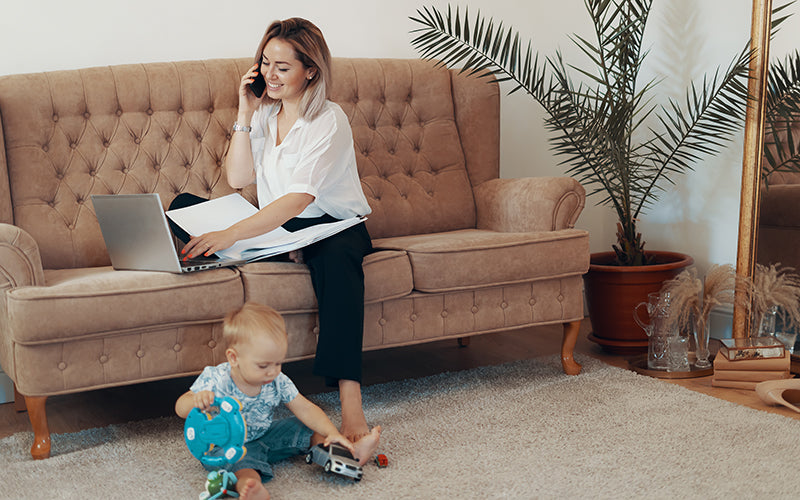Here’s what you need to know about how to use your time in bed to get fitter, healthier and happier.
If you have any ambition to be healthier and fitter, then the science is clear – you need to pay more attention to the quantity, quality and consistency of your sleep. “If you want to lose weight and get fit, the first thing you should focus on is getting your sleep right,” says performance coach and sleep expert Dr Jonathan Bloomfield, who works with elite sportsmen and blue-chip executives (support2perform.co.uk). “There are clear links between sleep and weight gain, and sleep and testosterone levels. So if you fail on your sleep you’re never going to achieve your fitness or weight loss goals.”
The good news is you can start to make significant changes to your sleep tonight – first by understanding why it matters and then by following Bloomfield’s advice for optimising pre-bed routines, the perfect conditions for sleep and how to use technology to help you wake up feeling refreshed.
Why is sleep important?
There is still quite a lot we don’t know around exactly why we sleep and what is happening when we sleep. But in recent years scientists, and in particular neuroscientists, have made more discoveries around the mechanics of sleep.
Most experts believe that across an average eight-hour sleep, the first 50% is concentrating on repair and restoration of the physical body, and the second 50% is where there’s more brain activity. In that second half there’s a higher concentration on things like memory consolidation, learning and strengthening neural networks, and brain function repair.
What else has been discovered recently that has interested you?
Research has discovered a vital process in the brain – a “washing” system, which removes neurotoxins that build up over the course of the day. What stage of the night that occurs or when it is most prevalent hasn’t been pinpointed, but it shows that the brain does a very important piece of physical restoration. It deals with a protein called beta-amyloid that, if it builds up over time, can lead to cognitive problems. That’s one reason there’s an association between insufficient or low-quality sleep over a long period and the development of conditions such as dementia.
What else happens when you don’t get enough sleep?
You’ll have diminished brain restoration and cognitive impairment. People become more forgetful or their pace slows down a little bit. The executive functioning (the mental skills that let you achieve tasks) sort of slows down or switches off, and then the brain gets to a state where it can’t actually form new memories or learn anything. People who are sleep-deprived find it difficult to take information in and retain it because the memory consolidation isn’t happening.
Other than that, it also affects the nervous system. There are two branches of the autonomic nervous system: one branch activates us and the other restores and recovers us. The problem comes if we’re chronically activated and chronically stressed and there’s an absence of recovery. When that happens, which it does if you get insufficient sleep, there’s an imbalance in the nervous system and that leads to many of our organs being insufficiently repaired and recovered, such as the adrenal glands, which can lead to adrenal fatigue.
Does it matter when you sleep?
I always talk about sleep as a component of a 24-hour cycle. We have a body clock and a circadian rhythm, and many of our organs and our hormonal cycles flow along that rhythm. One hormone that’s highly relevant for people who are training is growth hormone. It surges between 1am and 3am, provided you have a consistent 24-hour body clock. So that’s a very important couple of hours within the day for your physical repair.
How much sleep is enough?
Adults generally need between seven and nine hours a night. Very few of us can cope with less than that although many of us try to – the UK average now is about 6½ hours, and five or six hours is now becoming increasingly common among busy guys. There was a recent study with 24-year-old healthy guys who slept for just five hours a night for seven nights. They started to age rapidly and registered a 15% reduction in their testosterone. That hinders not only their capacity to train but also their fertility because their sperm won’t be quite as healthy.
Are there any other factors that we should consider?
People focus on quality and quantity, which are important, but we shouldn’t overlook the importance of sleep consistency. If you have a regular weekday bedtime and then stay up late or have a lie-in at the weekend, you can suffer a form of “social jet lag”. This can hinder those 24-hour processes so I’d advise you to avoid that. Consistency is now one of the strongest messages put forward by sleep scientists to help a person’s wellbeing and performance.
Does being fit help you sleep?
If you can improve your cardio-respiratory fitness, that’s one of the best ways to get good-quality sleep. The fitter the body, the better able it is to regulate itself. It’s as simple as that. It’s more resilient and it is better able to reboot itself and go through its natural functions. As human beings we’re designed to move and then recover, but our modern lifestyles act against both of those things. When we follow the rules of biology, we do OK; when we try to work against them, we always have problems. Biology will always beat us – maybe not immediately but at some stage.
What are the perfect conditions for sleep?
You want to cut back on stimulants after lunchtime. So have your last cup of coffee no later than 2pm. If you’re a smoker, try to have your last cigarette by 4pm. And do your best to make that final one earlier and earlier in the day until the point where you don’t need them any more! Avoiding alcohol would be another pre-sleep routine tip.
What’s your own pre-bed routine?
I usually tidy the kitchen, and maybe get breakfast ready for the morning. Then I do my bathroom routine, brush my teeth, and when I’ve done that I go into a dark bedroom. I don’t have any bedroom lights on – I kind of find my way into bed. So I don’t spend any time in bed reading or anything. If you want to read, do it in a part of the house that’s not your bedroom. Don’t associate anything like that with being in bed.
When the lights are off, if you hold your hand in front of your face with your arm outstretched and you can see your hand, your room isn’t dark enough. If that’s the case you may want to get blackout blinds. If your bedroom is close to a street lamp those blackout blinds become even more important. Wearing an eye mask is another way of making it as dark as possible.
Apart from making your room dark, what can help you get a good night’s sleep?
When it comes to temperature, cooler is better. It’s recommended to have the room at about 18.5°C but you could go as low as 16°C. If it’s possible to have a window open to allow a bit of air circulation, that could be helpful to keep the temperature consistent. You could also consider using a fan – they can be useful in hot conditions if you can tolerate the white noise. Speaking of noise, if you live by a road and can hear traffic passing, this can affect the quality of your sleep. If that happens, consider using ear plugs.
Eye-Opening Stats From The Sleep Council’s Great British Sleep Report
74% of Brits are getting less than seven hours’ sleep a night on average
Bloomfield says “Aim for a regular bedtime seven days a week. Most of our waking times are fixed either by alarm clock or body clock, so getting to bed at the right time is key.”
12% of Brits are getting less than five hours’ sleep a night on average
Bloomfield says “This negatively affects the physical restoration of the body and will significantly reduce the functional capacity and performance of the brain.”
30% of men use alcohol to help them nod off
Bloomfield says “Alcohol is used as a sedative, but your body then needs to remove the toxins while you sleep. This has a negative impact on your sleep stages and makes the recovery process non-restorative.”
12% of Brits use meditation to help them get to sleep
Bloomfield says “Meditation, mindfulness, prayer and gratitude journals are excellent pre-sleep strategies – they encourage parasympathetic nervous activity to enhance physical rest.”
53% of men go to sleep after 11pm
Bloomfield says “Be aware that any sleep after 1am is compromised. Be cautious of when you finish vigorous exercise in the evening because it will take three hours before sleep becomes possible.”
39% of men are kept awake by stress or worry
Bloomfield says “Discover strategies that work for you to help manage stress better. Mindfulness is very helpful, as is talking with someone who will give you listening space without any judgement.”
9% of people check social media last thing at night
Bloomfield says “Social media is designed to be engaging and provoke a response. Before you know it you’re getting drawn in, all the while getting blue light to confuse your body clock.”
Written by Jon Lipsey for Coach and legally licensed through the Matcha publisher network. Please direct all licensing questions to legal@getmatcha.com.





Leave a comment
All comments are moderated before being published.
This site is protected by hCaptcha and the hCaptcha Privacy Policy and Terms of Service apply.